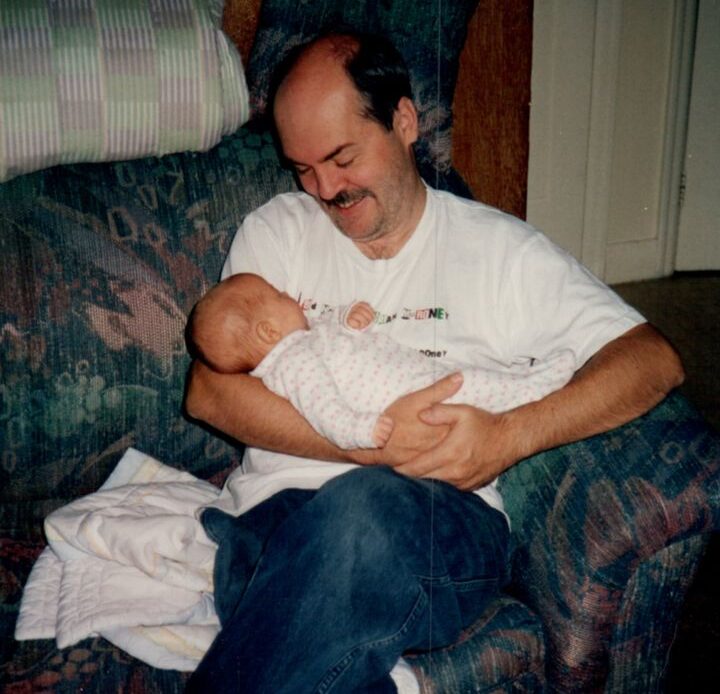The most vivid memory I have of my dad’s cancer treatment is a silent one.
In it, we are alone in a dark, curtained room just off the emergency ward. I no longer remember why ― some complication related to his colon cancer, which seemed to mutate as quickly as we could consult doctors. It was cancer in one place, then two. It was stage 1, stage 4, seesawing back and forth depending on whom we asked. He’d be fine after chemo, radiation, an eight-hour surgery. He was fine, indefinitely — then, abruptly, he had weeks to months left. Then a week. Days.
It is late at night in the hospital room, and my dad is unconscious. There’s something intimate and uncomfortable about watching him sleep in the thin hospital gown, all emotion scrubbed from his face. I’m 22, and I have been utterly calm since the diagnosis came less than a year ago. I’ve had to be.
Watching his chest rise and fall, I slow my own breathing, matching it to his. We commune like this, still amid the buzzing hospital, lungs and heartbeats pulsing to the same slow rhythm. I know his breaths are numbered. I know we may never share silence like this again.
My dad died on July 12, 2017, a year after his diagnosis. That day, it rained ― a series of small and scattered thunderstorms.
He died at home, on the same couch on which we’d watched hockey and HGTV and shared nachos with exactly one topping (cheese). Summer air drifted inside through the screen door to the backyard, which we’d left open at his request, “so I’ll have somewhere to go.”
He opted for medically assisted death — and in a different context, there’s plenty I could say about how important that was for him and for all of us. For now, for here, this will have to do: He was able to leave us while he still felt, however marginally, like himself, and that was a blessing.
In the hours before the doctor pulled into our driveway, my thoughts buzzed into static, all that withheld panic flaring to sudden, hyperfixated life. I wanted to find something poetic or important to say, something worthy of my final chance to talk to my dad. Nothing came. I was sure that, in the coming years, there would be plenty I’d want to say to him: I’d want to tell him when my boyfriend proposed, for example, or ask his advice on friendships, writing projects, promotions. Here and now, those conversations were unreachable, locked in the future we were being robbed of.
Yet what I…
Click Here to Read the Full Original Article at Women…

